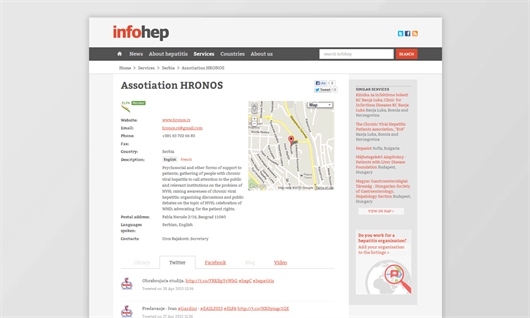
Sunday 28 July was a key day in the hepatitis calendar with
individuals, communities and organisations across Europe running events and
activities to raise awareness about hepatitis. The flurry of conversations,
reports, breaking news, tweets and Facebook posts just served to show that
there is too much to say in just one day!
Infohep.org celebrated
its first World Hepatitis Day by reporting on the very latest news, streaming up-to-the-minute news from other credible
sources, as well as highlighting some of the main activities of members of ELPA,
our partner in infohep.org.
Here is a quick round-up of some of the exciting World
Hepatitis Day activities.
The World Hepatitis Alliance (WHA)
With a Guinness World Record attempt and monkeys travelling
all over the world, the WHA invited everyone to join its mass awareness
campaign. It focused on two themes:
Have a look at the monkeys' journey; they’ve even become film
stars just for World Hepatitis
Day.
The campaign gives an international focus to groups
and organisations around the world
that can join in, help raise awareness and influence real change in disease
prevention and access to testing and treatment.
European Liver Patients Association (ELPA)
ELPA’s special focus this year was on Croatia, to mark its accession to the European Union on 1 July.
Other ELPA members held their own events, disseminated
flyers and helped break (hopefully!) the WHA’s World Record attempt.
Check out LIDPA's
(Lithuanian Infectious Diseases Patients Association) ‘See
no evil, hear no evil, speak no evil’
gathering in Vilnius.
ELPA also created its own Three Monkeys animation, which can be subtitled in
a range of languages and broadcast across a variety of media.






Connect with infohep on Facebook: Keep up to date with all the latest news and developments.
Follow infohep on Twitter for links to news stories and updates from infohep.org. Follow us at www.twitter.com/infohep.
Follow all the infohep news by subscribing to our RSS feeds.